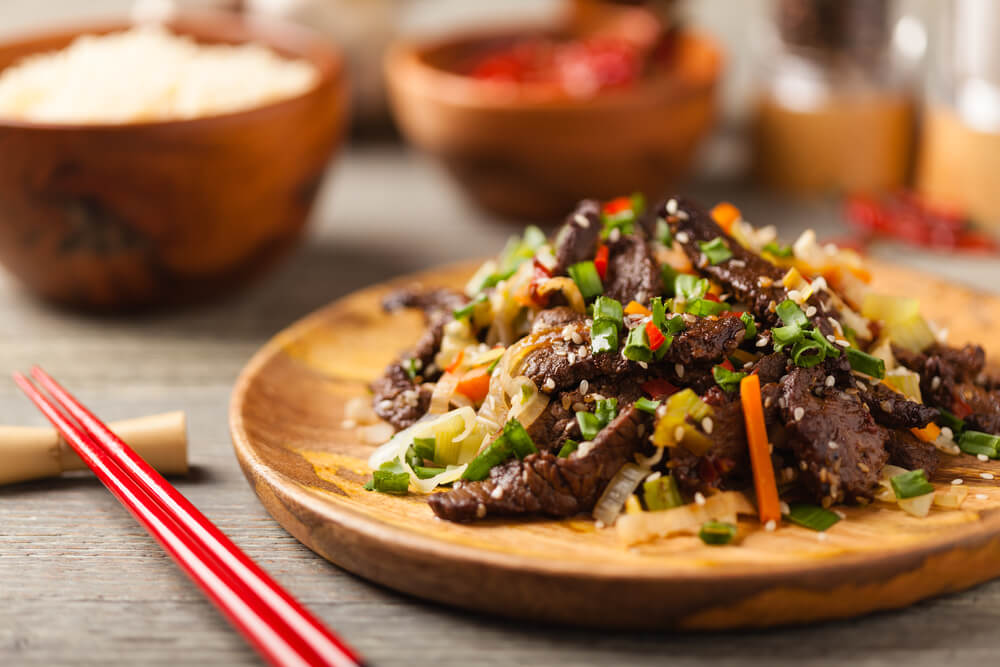There is a lot of debate surrounding organic meat vs non-organic meat. Some people swear by the quality of organic meat, including the flavour, but is there a meaningful difference?
In this blog post, we will explore the differences between organic and non-organic meat, and help you understand which option is best for you and why.
What is organic meat?
Organic meat is defined as meat that is produced without the use of synthetic pesticides, hormones, or antibiotics. Organic farmers tend to pledge to use sustainable farming practices too, which means they work to protect the environment and animal welfare.
Non-organic meat, on the other hand, is produced using conventional mass-farming methods. This includes the use of synthetic pesticides, hormones, and antibiotics, which are believed by many to be harmful to humans in the long term.
So, what does this mean for you?
Organic meat is generally considered to be a higher quality product because it is natural and the animals are fed better quality food. You have heard the expression “you are what you eat”. The same is true of your food. In other words, you are also what your food eats.
If the food you eat is pumped with chemicals, drugs, and hormones, then these pollutants may be present in the meat and they may make their way into your body when you eat them.
There has been much concern over the years relating to antibiotic-resistant strains of viruses. This is because common strains of viruses are constantly exposed to antibiotics when they are fed to animals. Over time these viruses develop an immunity to the antibiotics or evolve to be stronger than them.
It is believed that eating meat that has been fed antibiotics also reduces the effectiveness of antibiotics on the person eating the meat. This is especially true if the meat is not properly cooked and you ingest some of the meat’s bacteria. This is more common than you might think, albeit in small quantities.
A lot more research needs to be done to know the full impact of consuming meat that has been fed antibiotics, but we know that health bodies across the world have been expressing concerns about this issue for a while, especially since COVID.
What about organic meat?
Organic farmers have to follow strict guidelines set by the government in order to be certified organic. This means that they are held to a much higher standard when it comes to the way the animals are fed and treated, which impacts the quality of their meat.
Organic animals also live much longer lives because they do not rely on hormones to speed up their growth. This means their meat and bones develop properly before they are taken to market. Their longer life spans are considered one of the primary reasons that their quality of meat is higher and safer to eat.
You will notice that organic meat does not shrink so much when it is being cooked when compared to non-organic meat. This is because organic meat does not retain as much water, nor is it injected with water for added volume.
Adding water, or plumping, is a common practice in non-organic meat, especially chicken. Salt is often added to improve flavour, however, there are both serious cost and health implications to this practice.
Meat is generally sold according to its weight. When water and salt are added it increases the weight and decreases consumer value. Water can account for 15-30% of the total weight, so consumers are paying for meat that they are not receiving when they buy non-organic.
Salt has also caused an endemic of heart and cardiovascular disease. The salt in conventional plumped meat is a stealth killer to watch out for.
What about taste?
So, organic meat vs non-organic meat, is there a difference?
Taste is a subjective quality. It is difficult, if not impossible to accurately measure the quality of taste in any reliable way. The same is true of texture.
While it is difficult to measure the difference in taste, those that buy organic meat argue that the meat is more tender and flavourful.
The most notable and measurable difference is that organic meat is less likely to contain residue from synthetic pesticides, hormones, or antibiotics. For those of you that are concerned about these substances being in your food, organic meat is the best option for you because you will have peace of mind.
Conclusion
The bottom line is that organic meat is generally of a higher quality than non-organic meat. Non-organic farmers do not have to meet the same standards and this means that the quality of their meat is not guaranteed.
Organic meat is more expensive than non-organic, but for those that can afford to make the leap, it is definitely worth the price tag because you cannot put a price on your health.
Notwithstanding, we understand that the extra cost is just not feasible for everyone, especially under the current financial climate. Luckily, there is a bridge between the two and that is free-range meat.
Free-range animals are given much more freedom and live more natural lives. This also really improves the quality of their meat.
Halal-Origins is developing a range of free-range meat, but we go one step further by ensuring that all our livestock are fed only grass or corn, which further improves the quality.
Try our range of fresh meat products – you won’t be disappointed.
Check out our blog on free-range products. We also have a blog on corn and grass-fed meat.

